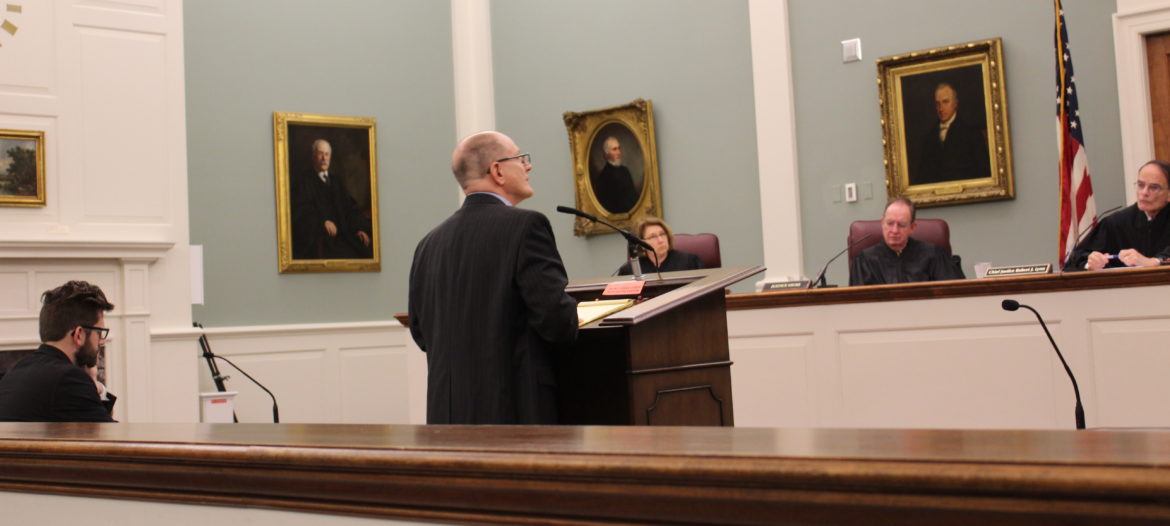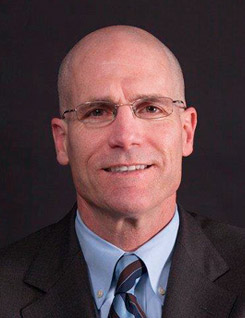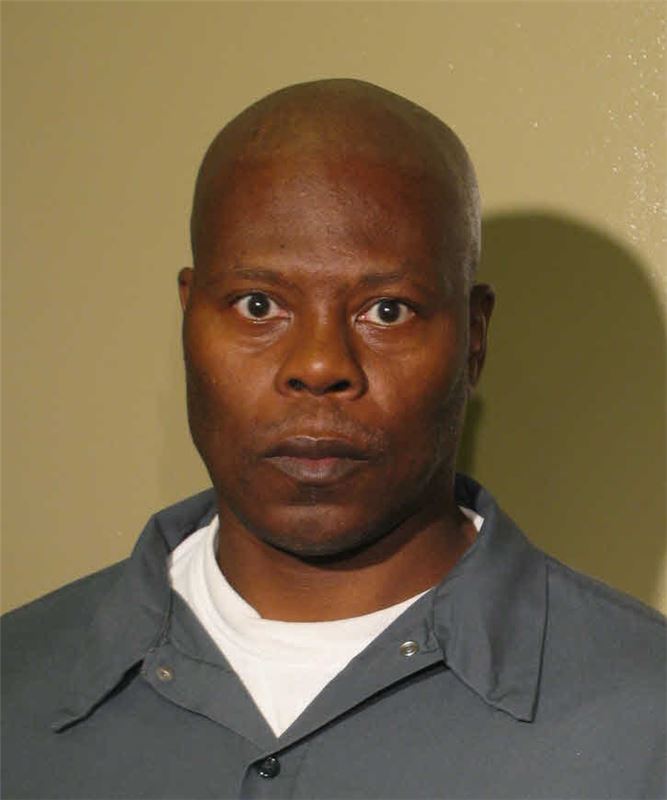By Nancy West, InDepthNH.org
Kenneth Hart served his maximum 20-year sentence in state prison for rape rather than admit to his guilt and possibly serve a lesser sentence.
If he had admitted to the crime after serving his minimum of 10 years, he could have applied for parole.
But now that he has served the maximum, still not admitting his guilt, the state has moved to keep him locked up longer by having him civilly committed to the state psychiatric hospital.
Hart insists he is not mentally ill and that he never raped anyone. Further, Hart, who is black, says his conviction is a case of racism as well.
“It’s because I’m a black man,” Hart said. “And I’m intelligent.” Hart spoke to InDepthNH.org by phone and at the state hospital recently after his transfer from the prison.
The state successfully argued in a confidential Probate Court hearing that Hart is dangerously mentally ill because he would refuse to take medication for schizophrenia when released from the state prison. On Aug. 31, a judge signed a commitment order involuntarily admitting Hart for two years to the New Hampshire Hospital, the state’s psychiatric hospital, as a result.
And while Hart plans to appeal the admission order to the state Supreme Court, in a separate proceeding, Hart is finally getting the Supreme Court appeal he says he was denied almost two decades ago after his criminal trial and conviction.
Hart said he takes the medicine usually prescribed to schizophrenics because he gets forced injections if he refuses. The state says Hart suffers from schizophrenia, is sometimes aggressive and anti-social, and decompensates when he doesn’t take the medicine. He was transferred several times to the prison’s psychiatric unit, sometimes for long stays.
Hart maintains he has been the victim of racism in New Hampshire from the day he was accused of raping a 33-year-old white woman on Oct. 21, 1998, at the Cathedral Manor rooming house in Manchester.
Hart first talked about racism in 2000 while representing himself during an eight-day trial.
While Hart’s behavior prompted a psychiatric evaluation before trial, Dr. Albert Drukteinis then found him competent to stand trial, but also not competent to represent himself. Judge William Groff allowed Hart to represent himself anyway.

Nancy West photo
Christopher M. Johnson, the state’s chief appellate defender, is pictured last week arguing to the state Supreme Court that Kenneth Hart didn’t get a fair trial. To his left is Assistant Attorney General Sean R. Locke, who argued mentally ill people should have the right to represent themselves at trial.
Hart’s perspective
Hart agreed to share publicly the Probate Court documents that are usually confidential in civil commitments.
“My trial was not fair,” Hart said. “The woman definitely had problems and I was the only black person in court.”
Wearing the new sweatpants and new sneakers his mother sent him to wear when he was scheduled to be released, Hart carried the dog-eared notebooks containing his writings and legal work as he spoke with a reporter in a small visitor’s room at the state hospital.
Hart insisted on representing himself at trial and said he couldn’t file an appeal after his rape conviction because the state moved him to a Florida prison where he didn’t have access to New Hampshire law books. As a result, he missed the deadline.
He has been writing and filing complaints and pleadings since he was returned to prison in New Hampshire, but it was only last year that Judge Andrew Schulman referred one of his filings to the Public Defender’s office. And Christopher M. Johnson, the state’s chief appellate defender, took on the case marking the first time Hart had counsel to represent him in challenging his conviction.
 Concord attorney Shane R. Stewart[/caption]
Concord attorney Shane R. Stewart[/caption]
Hart’s attorney in Probate Court, Shane R. Stewart of Concord, said he hasn’t seen a similar case in his practice.
“When someone does their time, usually they are done,” Stewart said.
New Hampshire has a dangerous sex offender statute that is rarely used allowing the state to hold a sexual predator past his completed sentence, but that definitely wasn’t applied in Hart’s case, Stewart said.
Court records show Hart had a history of arrests for petty crimes in several states including New York, New Jersey, Massachusetts and only one conviction for a misdemeanor assault in 1995 in which he served 30 days. There were no prior allegations of sexual assault in his record.
Stewart said: “The state seems to have argued that Hart would be a danger if released because he would refuse to take his medication.
“Kenneth has a guardian who decides his medications for him. He doesn’t get to decide his meds.”
To be civilly committed, the state had to prove that Hart was both mentally ill and dangerous to himself or others, Stewart said.
“How can he be dangerous by refusing to take medications when someone else has that decision?” Stewart asked.
In her order for involuntary admission, Judge Barbara A.M. Maloney wrote: “The court finds by clear and convincing evidence that Kenneth Hart is presently in such a mental condition as a result of mental illness as to create a potentially serious likelihood of danger to himself or others …”
Maloney stated that Hart acknowledged to a psychiatrist that he grabbed another inmate around the throat for touching his radio cord.
“The court-appointed psychiatrist testified to his opinion that Kenneth Hart meets the dangerousness standard in that the danger stems from Kenneth Hart’s lack of insight and judgment regarding the need for medication,” Maloney wrote.
Stewart argued in a motion to reconsider, which Maloney denied, that the court didn’t apply or enforce the rules of evidence.
“And made findings based on the testimony of three experts (two psychiatrists and one social worker) who had no relevant personal knowledge of the alleged dangerous acts … and their testimony violated the rules of hearsay,” Stewart wrote.
Stewart said the state may be trying to play it safe in case Hart was released and committed a crime.
“It’s a safe play. I’ve never seen it. I don’t like it,” Stewart said.





